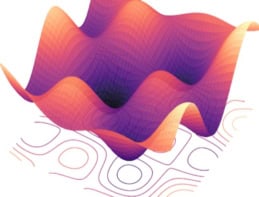Katrin Erath-Dulitz is an assistant professor of physics at the University of Innsbruck, Austria. Her work aims to understand the fundamental aspects of chemical reactions, which involves using lasers at low temperatures to control the quantum states of the reactants. She was awarded a 2022 Journal of Chemical Physics Best Paper by an Emerging Investigator award for work published with her colleagues for which she was the principal investigator

What skills do you use every day in your job?
As a researcher, I rely on creative thinking both to design research projects and to solve problems in the laboratory. We have custom-built machines in the lab which often require some improvisation so that we can progress with our experiments quickly. As a group leader, I also need to work efficiently, keep everyone motivated and handle finances. I’ve always been very organized, but I have developed and refined other skills during my academic journey. When I started my research group a year ago, I was faced with an increasing workload and limited hours in the day, and learning to manage time effectively was a big challenge. My experience as a postdoc has also been valuable. For example, with limited financial resources, I quickly learned to prioritize cost-effective solutions. Similarly, I recognized that projects progress much faster in a team, so now I actively foster a collaborative environment within my group.
In my role as a university teacher, I need to make complex scientific ideas accessible to my students. I want to make them aware that the lecture content also has real-world applications, so I show them how the concepts I teach them are used in my laboratory. I also taught a course in which the students were asked to draft a proposal for an experiment at a large-scale laser facility. I wanted them to reflect on the lecture material and develop creative ideas for experiments.
What do you like best and least about your job?
The most rewarding aspect of my work is the opportunity to pursue projects that I am passionate about, ranging from understanding molecular interactions to constructing intricate scientific apparatuses for our research. I value the freedom to shape my daily schedule and to choose the projects that I want to engage in. There are also exciting aspects that I did not anticipate during my student days, such as the chance to attend international conferences and participate in scientific initiatives at large-scale research facilities all over Europe.
Engineering world-changing materials: Nicola Spaldin on the importance of curiosity-driven research and what it means to be a physicist
While my career is extremely exciting, frequent relocations over the past decade have made it difficult to establish roots and maintain friendships. Another challenge I have faced is the limited number of permanent academic positions – the uncertainty regarding my personal and professional future was something I found stressful. I feel very fortunate to have secured a position in Innsbruck, which has an exceptional working environment and a high quality of life, with many opportunities for outdoor activities.
What do you know today, that you wish you knew when you were starting out in your career?
Reflecting on my journey, I realize that I may have rushed through my studies. It is clear to me now that investing extra time in exploring content beyond that taught during university classes is crucial. Specifically, I regret not dedicating more time to studying quantum mechanics during my student years. I found myself needing to teach myself a considerable amount of it during my PhD.
Looking back, I wish I had trusted in myself more and started applying for scholarships as an undergraduate student. When I was asked to apply for scholarships for my PhD, I initially doubted my abilities, but with the help of my supervisor I took the chance, and I succeeded. My advice to other students struggling with imposter syndrome is to avoid comparing themselves to their peers and to find supportive mentors, as I did at this early stage.




